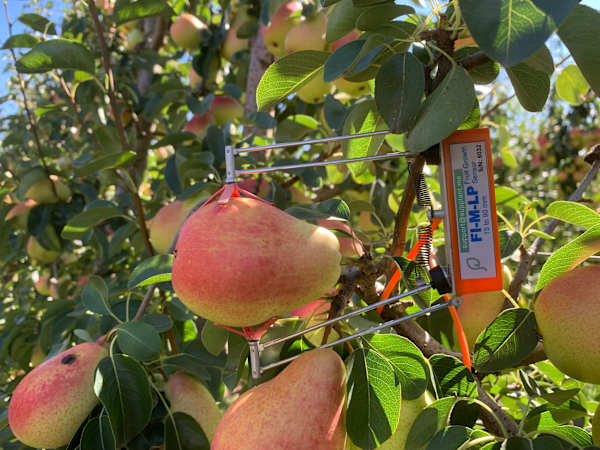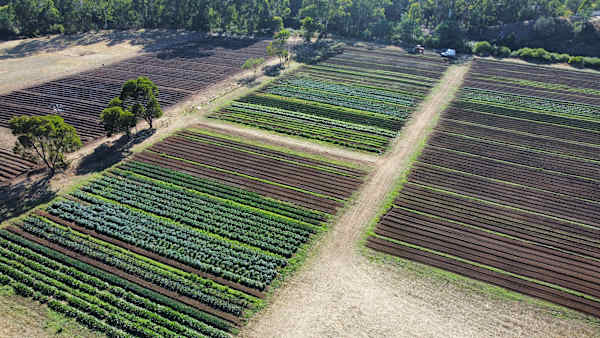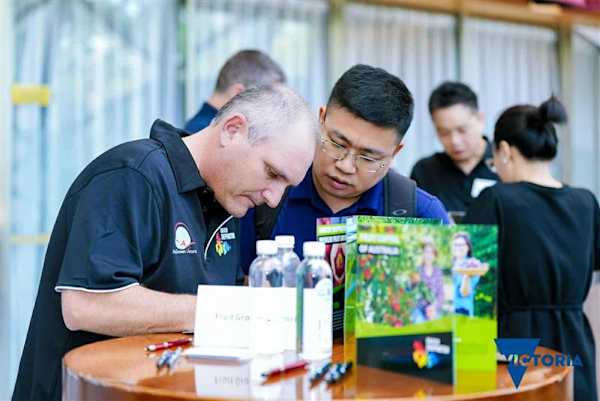THE Silvan Gather Flower Farm (begun as a joint venture three years ago by cousins Eliza Henry Jones and Melanie Kercheval) is described as "an unbelievable joy" and a testament to what can be achieved on small acreage.
According to city–raised Eliza, an established novelist and freelance writer, the 7.5 acre property was purchased in 2015 with her mother and husband, Ben.
The initial attraction was the established orchards.
"We wanted acreage mostly so I'd have the room to keep my horses at home, and so we could grow a fair amount of our own food," Eliza said.
Growing food for their use soon expanded into selling produce at local farmer's markets.
Latest Stories
"In addition to the established orchards on the property, there were also established proteas.
"I'd throw a few in when we had a stall and was stunned by how quickly they'd be snapped up, and by how much people loved them," Eliza said in response to how the flower business came about.
"Melanie (Mel) and I both read the "Floret Flower Farm's Cut Flower Garden" by Erin Benzakein, and when I mentioned to Mel that I was keen to try my hand at growing some cut flowers, I was ecstatic when she decided to join me.
"Which is lucky for me – she's built everything up to what it is today and is basically magical," she said.
And to add to the magic, Eliza said, "Turns out we'd accidentally bought a north–facing, gently sloping block of fertile, red volcanic soil – perfect for flower growing!"
One of the things that Eliza is most proud of is an environmentally friendly and sustainable approach to the business, which includes no use of herbicides or pesticides.
She notes this approach is vital to the florists and other buyers they deal with.
"We 've noticed a growing demand for local, seasonal flowers that aren't sprayed with harsh chemicals or transported across the world out of season," she said.
According to Eliza, it is a pretty special thing to be a part of.
"People are able to wander the farm when they come for workshops (or if we have time on the days, people come to pick up), and sometimes it's not pretty.
"We're still working out strategies for weed retention – but it's a great experience for people who may not have seen paddock to plate (or paddock to vase, as the case may be!)."
"We have frogs and lizards in our flower patches, and being part of the ecosystem like that is pretty great," she said.
Reflecting on the flower farm as to whether it is a good source of home–based income and offers flexibility around her family life, which includes Henry, a toddler, and writing commitments while enjoying a rural lifestyle, Eliza pauses.
"It definitely can be – but it's also easy to overcapitalise (I always get overexcited by shiny new plants and seeds, much to Mel's chagrin), underestimate the time and energy it takes to build up a profile and community, and it also requires a lot of knowledge," she said.
"I've killed a lot of plants in the last eight years."
She adores the opportunity to work with Mel, particularly how it complements the isolation of writing.
"And in some ways, it's very flexible, but in other ways, it's not.
"The plants need watering, harvesting and planting out at very specific times," Eliza added.
The Gather Flower Farm produces a variety of blooms and foliage for the cut flower market and for those who come to experiment in the workshops run in the renovated barn.
"We grow a mix of things including dahlias, roses, protea, peonies, zinnia, everlasting daisies, amaranthus, cosmos, queen anne's lace, yarrow, statice, gypsophila and plenty of foliage such as olive and eucalyptus."
Being a sustainable flower grower is not without its challenges.
"The variation from season to season – we had a booming season last year, this year things were very wet into summer, and have turned autumnal quite early.
"We've lost alot of seedlings to rabbits (who are masters at circumventing our fencing and hot wires), which impacts our harvest," Eliza said.
But as she said, there are always things that do well, and you learn something new each season.
Despite the problems of pest animals and changeable seasons, she agreed, "I'm certainly living my dream!"
However, she did believe it was easy to get swept away by the idea and underestimate the time and costs involved in maintaining acreage.
"Although our farm is small, it is densely packed," she said.
Eliza conceded there is always a list of things that should have been done a month ago.
"There's a lot less room for spontaneity – if we go out somewhere, we have to consider things like watering that day, what rugs the horses are in and when they'll be fed."
"Saying that, I grew up in the inner suburbs of Melbourne and I don't think it would be easy for me to go back after living on our farm," she added.
As an established novelist (her latest novel, "Salt and Skin", published August 2022) and freelance writer, Eliza has used her literary skills to tie in with the flower farm to run workshops that include making bouquets and as a way to inspire creative writing for participants.
Asked if she considered the workshops as value–adding to the existing flower business, she replied, "I think so, it's a new type of workshop for us, but I think anything that gives writers an opportunity to get inspired in a novel way is valuable."
Taking to the road in March, Eliza brought flowers to the inaugural Mansfield Readers & Writers Festival as part of a Masterclass: "The Language of Flowers".
Although this was her first masterclass using this theme, Eliza is keen to offer more creative sessions.
"Absolutely – it's one of my favourite things about the flower farm, how growing flowers demands an engagement with the present moment, but at the same time is also this living fragment of history and story," she explained.
Participants got to make stunning bouquets to take home.
At the same time, Eliza interwove folklore around various plants.
She shared the meaning of different flowers as a starting point for creative writing.
"This mirrors writing itself to an extent, I think – demanding you engage with the moment in a process that inexorably draws in the past," said Eliza.
She agreed flowers would always be part of her life and who she is, "Definitely – they've become too entwined in my story for anything else now."
As to plans for Gather Flower Farm, Eliza envisaged a rejig of the garden beds in the next little while to make the main beds prettier and more functional.
"Otherwise, we're just going to keep doing what we're doing – growing, teaching, marvelling over our blooms (killing plants), and learning," the flower–loving writer said.














